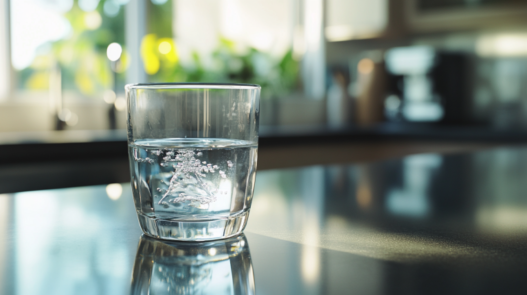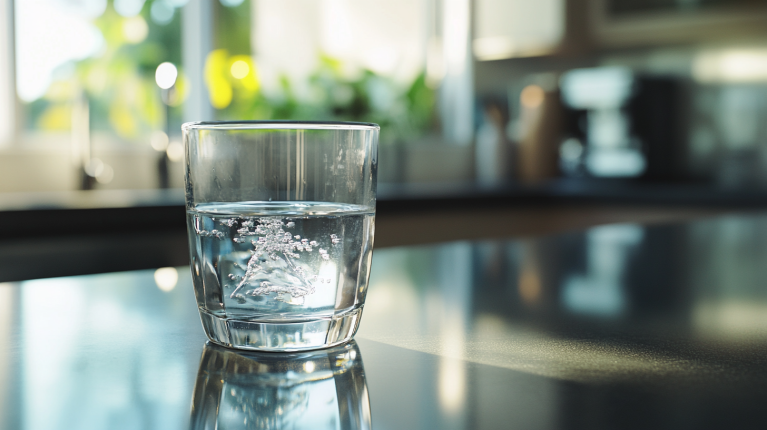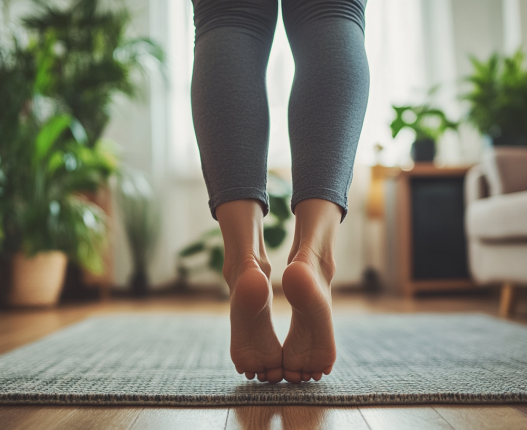We’ve all heard it before—when we visit the doctor, they often remind us to drink more water. But why does this simple piece of advice come up so often during medical visits? Recent research has shown that drinking plenty of water can improve a variety of health problems, and the benefits go far beyond what we might expect!
Research Findings: Drinking More Water Can Prevent Multiple Health Issues
A study published in the Journal of the American Medical Association in November 2024 revealed that adequate water intake can help with weight loss, prevent kidney stones, reduce the frequency of migraines, combat urinary tract infections, and manage low blood pressure. Here’s how:

Research screenshots
- Kidney Stones: Drinking 8 cups of water a day significantly lowers the risk of developing kidney stones again.
- Weight Loss: Drinking 6 cups of water a day helps adults with weight loss.
- Migraines: Adults who suffer from chronic migraines experienced noticeable improvement after drinking more water for just three months.
- Blood Sugar Control: Drinking 4 more cups of water daily helps diabetic patients better control their blood sugar levels.
- Urinary Tract Infections (UTIs): Women with recurring UTIs saw fewer infections after increasing their water intake by 6 cups a day.
- Low Blood Pressure: Drinking more water also helps regulate low blood pressure, especially in young adults.
Drinking More Water Can Relieve Multiple Health Problems
1.Alleviating Cold Symptoms
When you catch a cold, you’ve probably been told to “drink more water.” It turns out that this advice isn’t just a formality—it actually helps relieve cold symptoms.
Drinking water helps replenish fluids lost from fever, sweating, or medication, preventing dehydration. It also soothes a dry throat and thins mucus, making it easier to expel. Increased hydration promotes sweating and urination, which helps the body expel bacteria and viruses more quickly.

2.Relieving Constipation
People with constipation often don’t drink enough water, which causes stools to stay in the colon for too long. As a result, much of the water in the stools is absorbed, making them harder to pass.
Drinking enough water, especially warm water, helps soften stools and promotes easier bowel movements. Avoid replacing water with sugary beverages or coffee, as they can make constipation worse.
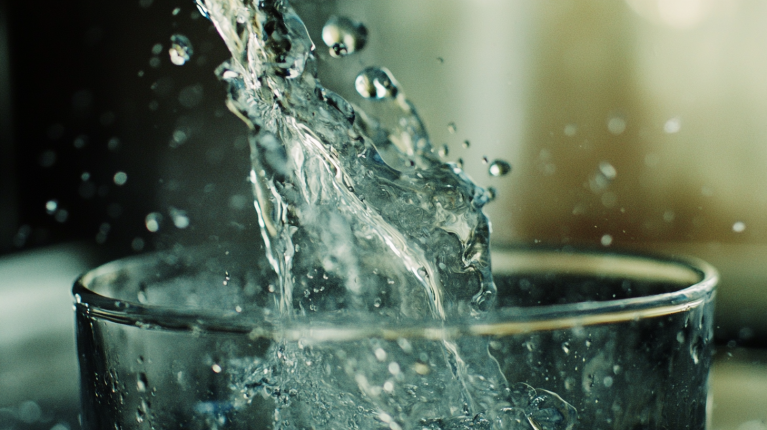
3.Managing Gout Symptoms
Drinking water is crucial for people with gout, a condition caused by high levels of uric acid in the blood. Uric acid dissolves in water, and adequate hydration helps flush it out of the body. This helps prevent uric acid kidney stones and slows down kidney damage.
Gout patients should aim for at least 2,000 ml of water daily, and those with kidney stones should aim for 3,000 ml. However, people with kidney or heart problems should consult their doctor before increasing water intake.
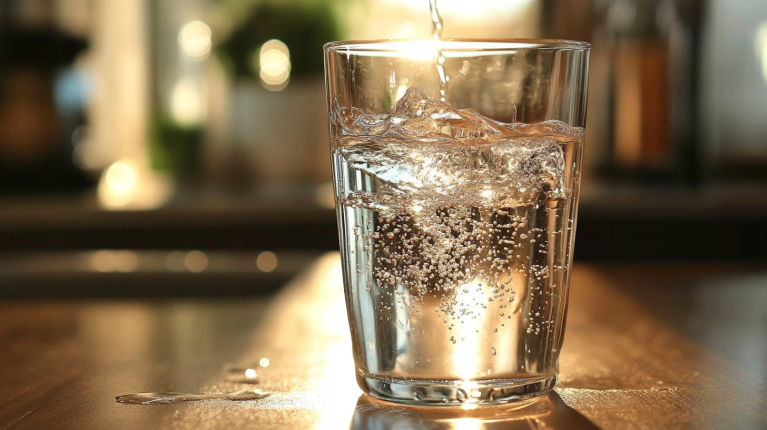
4.Preventing Kidney Stones
Many urinary stones form due to insufficient water intake. Drinking enough water helps flush out the urinary system and prevents the formation of kidney stones.
5.Improving Blood Circulation
Drinking warm water in the morning can promote better blood circulation. A glass of water at 35°C-40°C can help reduce the risk of brain clots and heart attacks. Starting your day with a cup of warm water (200-400 ml) is a great way to keep your circulatory system healthy.

6.Easing Menstrual Pain
Drinking hot water can help alleviate abdominal discomfort during menstruation. Applying a hot water bottle to the abdomen for a few minutes at a time can also provide relief.

7.Supporting Weight Loss
Studies have shown that drinking water before meals can aid in weight loss.
Drinking water before meals can increase satiety, which helps reduce overall calorie intake. Water also alters food cravings, making you more likely to choose protein-rich foods over carbohydrates, which contribute to weight gain.

5 Tips for Drinking Water the Right Way
1.Don’t Wait Until You’re Thirsty to Drink
Relying on thirst to remind you to drink water isn’t ideal. By the time you feel thirsty, you may already have lost 1-2% of your body’s water, which can lead to dehydration.
When dehydration reaches 2-4%, you may experience reduced cognitive function and fatigue. Severe dehydration causes dry skin, cracked lips, and weakness. It’s important to drink water consistently throughout the day.

2.Drink Water at 35°C-40°C
Water at 35°C-40°C is the most suitable for the human body, as it is close to internal body temperature and is gentler on the digestive system. Those who are sensitive to cold can drink slightly warmer water, but it should not exceed 50°C.

3.Sip Slowly, Don’t Gulp
The Chinese Dietary Guidelines (2022) recommend that adult men drink at least 1,700 ml of water per day, and adult women drink 1,500 ml. This equals roughly 6-8 cups of water.
It’s better to drink water in small sips throughout the day, with each sip being around 200 ml. Try to drink a little water regularly, and don’t forget to have some with your meals.

4.Don’t Replace Water with Sugary Drinks
Many people dislike the taste of plain water and opt for sugary beverages instead. However, excessive consumption of sugary drinks can lead to weight gain and other health problems, including dental issues. Water should never be replaced with soda, juice, or sweetened beverages.

5.Avoid Ice-Cold Water
Drinking very cold water can strain the heart, as it causes blood vessels to constrict. This can negatively affect circulation and increase the risk of heart disease.
Those with heart conditions, high blood pressure, or poor circulation should avoid drinking cold water. If you prefer cold water, it should be kept at 20°C-30°C to avoid harming your body.
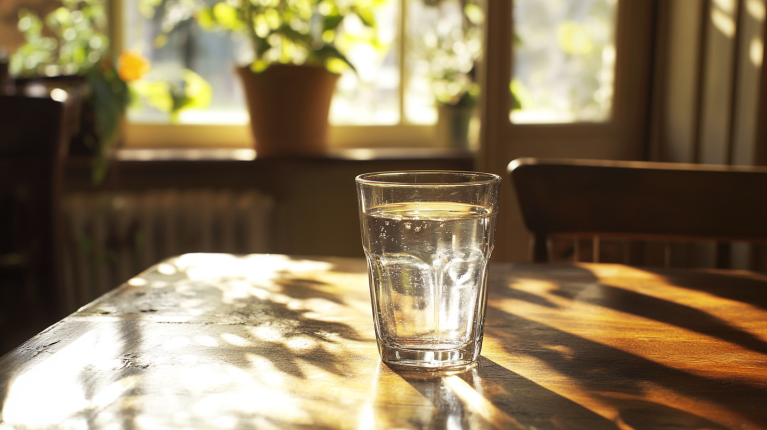
Conclusion
Drinking water is not just a basic necessity for life; its positive impact on health is far beyond our imagination. From aiding weight loss and preventing kidney stones to relieving cold symptoms and improving constipation, water is the simplest yet most powerful health “remedy” in our daily lives. Medical research has confirmed that adequate water intake can effectively address a wide range of health issues, helping maintain internal balance and promoting the proper functioning of various bodily systems. Therefore, developing a healthy water-drinking habit and ensuring sufficient hydration not only supports overall health but also helps prevent numerous diseases. Remember, water is your most accessible and powerful health weapon — never underestimate its immense potential!







